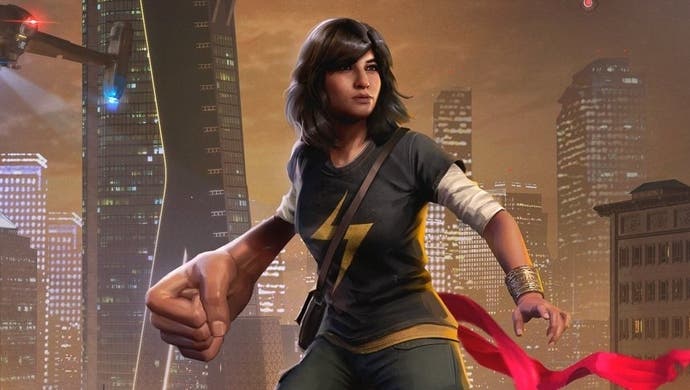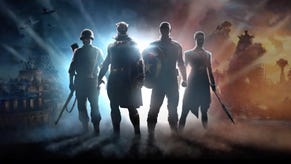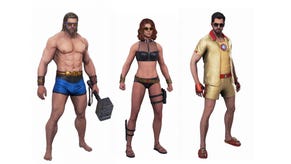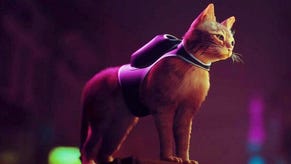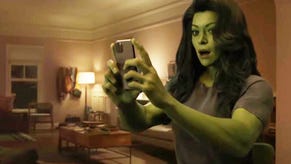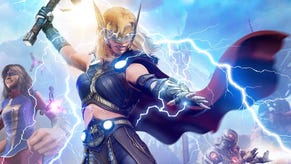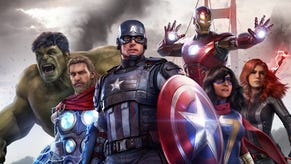Avengers' Kamala Khan is this year's most important hero
Ms. Marvelous.
We'll have our review of Marvel's Avengers up over the next few days, but before that we wanted to get some perspective on the representation the campaign brings from someone who really knows the Marvel universe.
When it comes to superheroes, for the majority of people the immediate characters that always come to mind are the classics such as Superman, Iron Man, Captain America and the like. Sadly it's rare that a superhero who isn't a straight white male will ever be mentioned. However, the team at Crystal Dynamics decided that they're going to flip the script when it comes to Marvel's Avengers. Despite this being an Avengers game, not a single one of them is truly the lead in the campaign. The hero of this story is Kamala Khan, a.k.a Ms Marvel, the first Muslim American-Pakistani hero in the Marvel universe - making this game pretty huge for Muslims around the world, including myself.
Representation is something that people of colour and folks from different faiths have been wanting in video games for as long as I can remember. It's something that we've started to slowly see an increase of in recent years with the likes of Overwatch adding Ana Amari, an Egyptian character who wears a hijab, and even Call of Duty: Modern Warfare attempted to break away from its stereotypical representation of Arabs and Muslims by letting you play an Arab soldier called Farrah in the singleplayer campaign.
However, we've never really had a triple-A game where being Muslim was a core part of a lead character, so when I started playing the campaign of Marvel Avengers, I was pleasantly surprised to see that Kamala Khan wasn't just a side character to the Avengers, in fact it was quite the opposite! The Avengers were the side characters to Kamala Khan's story. This was very much a Ms. Marvel story.
When Marvel Comics announced in November 2013 that Kamala Khan would be taking over the Ms. Marvel comic book series, this marked the first time a Muslim character headlined a book at Marvel Comics. It was a huge deal for Muslims everywhere, the fact that Captain Marvel, one of the most iconic heroes in the Marvel universe, was passing down the mantel of Ms. Marvel to a Pakistani-American Muslim character. And Kamala Khan's background was something quite important to the development of Ms. Marvel, as Marvel Editor Sana Amanat commented on the announcement, saying that the series came from a 'desire to explore the Muslim-American diaspora from an authentic perspective.'
In the very first hour of Marvel Avengers that authentic perspective that Amanat wanted immediately comes into play. Within minutes I instantly started to feel that representation that I very rarely get from games. The moments where Kamala refers to her father as Abu and when her father calls her Beta instantly made me connect with her. I had flashes of my aunty calling me Beta whenever she'd come visit me, and memories of seeing her call her father Abu whenever we had massive family gatherings for Eid. But it doesn't stop there, as there's another moment later in the opening where Abu is asking Kamala if she wants to go to the Mosque with the family, and it just made me think of my own mum every Friday asking me whether I'd like to go with her for the Friday prayer. It's just all these small moments that really bring forward the representation that Muslims like me have been craving to see in a video game.
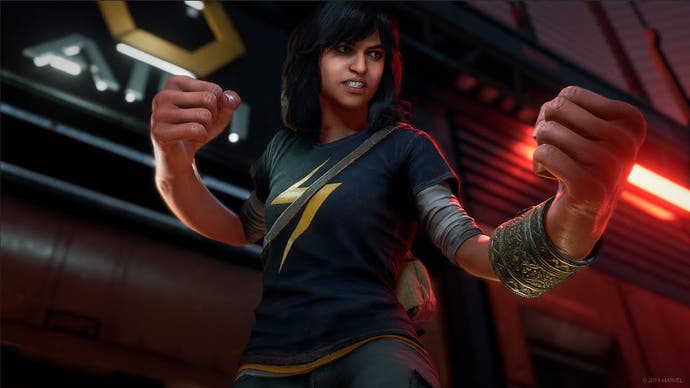
While Khan being Muslim isn't a huge story focus for the wider campaign, it's still a part of the representation of that character. Those small moments throughout the campaign were enough to make me well up, the moments when she would speak with her Abu and the moment where she puts together a makeshift superhero outfit using a burkini.
When it comes to representation, people of colour and people from different faiths aren't asking studios to develop something where the whole focus is the characters' race or faith, we're simply asking that you consider having more characters from these diverse backgrounds who are done accurately and faithfully. We're asking that you develop these characters with people from those backgrounds so that you can authentically get their perspective.
The only other time I felt represented in this way was with DC's Legends of Tomorrow. The show is just absolutely absurd, but what makes it shine is the representation that it brings. In this hugely diverse team there is a hero called Zari Tomaz, a Muslim hacktivist from a dystopian American future where anyone who was different would be imprisoned. What made me fall in love with Zari as a character was the fact that I could just see myself in her, and Kamala Khan evokes this same feeling when playing her story in Marvel's Avengers. This was someone who was absolutely normal, well barring the wind powers, but she was a normal person who enjoyed music, loved to be sarcastic, was hugely into her tech, and just an all round badass. Her faith and her race wasn't her defining trait. It's an important part of her, but she is so much more than just that.
When I go about my day-to-day life, being Algerian and Muslim isn't at the forefront of who I am. Yes, it's an important part of who I am, but I'm also a guy who grew up in Birmingham hating the brummie accent, who goes to the cinema with friends to watch the latest Marvel movie, someone who plays music in his spare time, someone who creates videos and writes about video games for a living, and someone who once won the Mr Happy award at his school prom. With Kamala Khan in Marvel's Avengers she's a Muslim girl who loves the Avengers, enjoys fast-food, is just a hugely happy and positive force and someone who just wants to do good. That's the kind of representation that makes people like myself feel seen and feel included because it feels real and authentic. It makes people like me feel like we're a part of this world rather than an outsider.
When Kamala Khan was first introduced in the comics she was a window into the American Muslim experience. She represented an entire generation of children who came from immigrant parents and who are a part of the post-9/11 generation. "Good is not a thing you are, it's a thing you do." That phrase from Kamala Khan is something that resonates with me a lot and will resonate with a lot of Muslim kids from that generation, especially after years and years of being demonised and being tarnished with the same brush. After seeing anything Arabic or Islamic again and again in films, TV, and games being equated to being bad or barbaric.
Not only is Kamala Khan out here representing us, but that window into the American Muslim experience in Marvel's Avengers is also bringing that representation to people who aren't Muslim or from immigrant families and giving them a small glimpse into that life when they take on the role of Ms. Marvel in the campaign.
Marvel's Avengers has its issues - outside of the narrative experience it's actually pretty janky, to say the least. But the campaign itself and most importantly the portrayal of Kamala Khan is what makes this title one of the most important games to represent Muslims who were brought up in Western societies.
